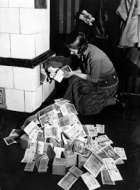Many here will know me from my book, Excellent Investing, which teaches investors how to build a better investment portfolio. Others will have seen some of the educational talks I’ve given at various Mello events. Given the wide breadth of topics I usually cover, some people will be unaware of my personal investment philosophy: I am a value investor.
Value Investing has a long history, the origins of which most people trace back to Benjamin Graham. Stockopedia subscribers are used to having a legion of investment metrics and tools at their fingertips. However, when Graham began his career early in the 20th Century, the idea that a stock could be understood more deeply by a rigorous analysis of the accounting figures was a niche view. Back then, it was far more common for stock market investors to invest on a hunch rather than delve into the details of the financials. Often stock market investing was simply a form of speculation, and lightly regulated brokerages called ‘bucket shops’ were a common way for individuals to bet on the direction of stocks or commodities. Given the rise of speculation in lightly regulated “assets” in the past couple of years, perhaps some things haven’t changed!
In his first book, Security Analysis, which was co-written with David Dodd in 1934, Graham shunned such speculative pursuits. In contrast, he strongly encouraged investors to take a conservative approach to their investment practice. He viewed each investment as owning part of a business, not a piece of paper.
Graham’s second book, The Intelligent Investor, was published in 1949 and became the defining value investing tome. In it, he suggests ignoring, or taking advantage of, the wild swings in the mood of the manic ‘Mr Market’. Graham viewed the market as a voting machine in the short term but a weighing machine in the long term. Accordingly, he implored readers to weigh their investments and take advantage of those market participants whose voting unnecessarily moved stock prices.
It was Graham whom Warren Buffett chose to work for, for free, to learn his ways. Since then, many successful investors have chosen a value investing path, each adding their own unique flavour. While Walter Schloss closely stuck to Graham’s methods, Buffett transitioned to buying wonderful companies at fair prices rather than fair companies at wonderful prices. David Dremen applied the value principles purely…









